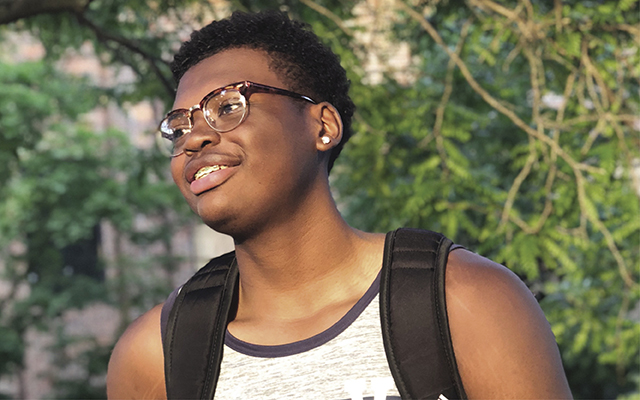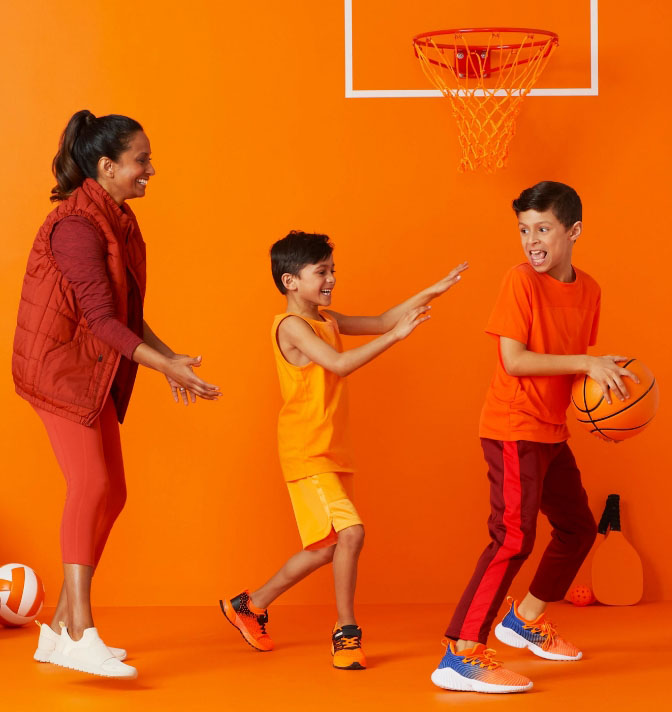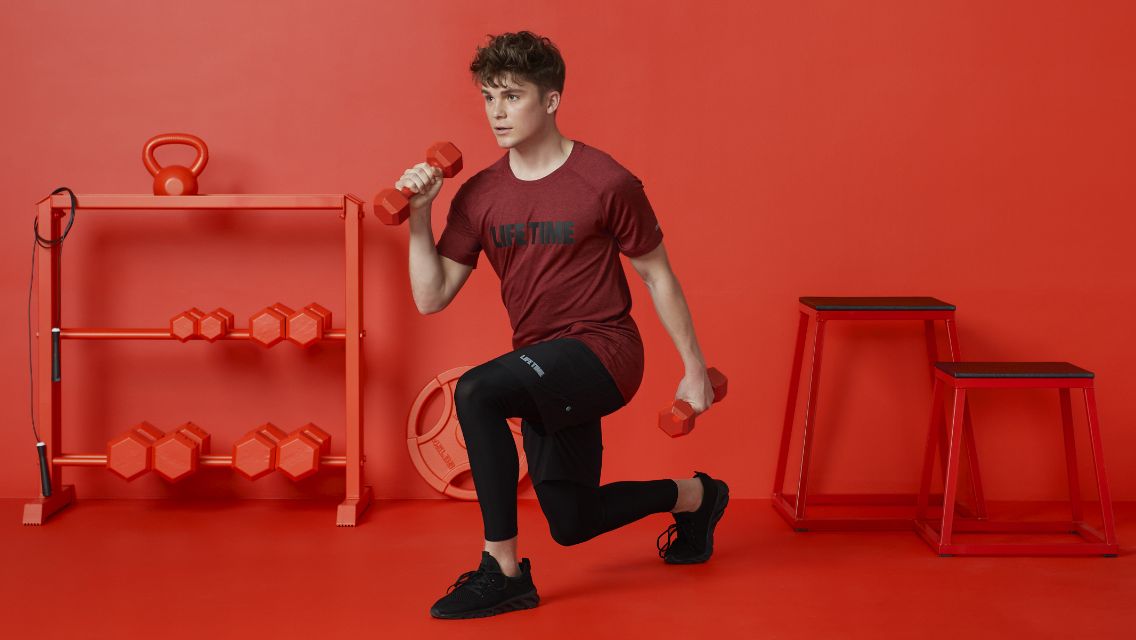When I was 4 years old, my dad thought I was ready to begin focusing on a team sport. He put a baseball, a football, and a basketball in front of me and asked me to pick one. I pointed to the basketball. Neither of us knew then what a meaningful role the game would play in my life — or how much determination it would take for me to become the best player I could be.
I started with YMCA basketball camps, then moved on to the Detroit Pistons junior program and eventually a youth league in my hometown of South Field, Mich. I fell in love with the sport and spent countless hours perfecting my shot and working on my ball-handling skills. If I wasn’t in school, I was on the court.
The shot that sealed my commitment to the sport occurred in a championship game when I was 7 years old. Our team was down 50-52. With two seconds left on the clock, the point guard passed the ball to me for a three pointer. As soon as the ball left my hands, I knew it would go in. As the cheers from the crowd filled my ears, I pointed at my dad in the stands.
By 13, I was 6-foot-2 and one of the tallest kids on my middle school team.
But I was heavier, too. I could drive to the basket and shoot, but lacking speed and stamina, I couldn’t crack the starting lineup. That’s when I first realized that my weight was holding me back.
Big Man, Big Goals
All I heard during high school was “You’re really good, but you’ve got to be able to keep up.” My skill, determination, and drive couldn’t compensate for my size.
Because of my height, I played forward or center, though I always longed to sink another long-range championship buzzer-beater. Big men, however, don’t generally shoot three-pointers.
I knew I had to work harder to be the player I wanted to be, but no matter how much I exercised, my weight stayed the same. Like a lot of teenagers, I ate mostly fast food and processed snacks. I didn’t have the slightest idea how to eat healthy; I thought the only option was to not eat, which didn’t work for me as a competitive athlete.
When I graduated from high school in 2016, I had offers from Division II and III schools, and I nearly accepted one. But I dreamed of playing Division I basketball, and I knew in my heart that I had the potential. Still, my body was telling coaches a different story. At 6-foot-7, I weighed 255 pounds, and I had developed painful tendinitis in both knees.
My parents and I decided I should spend a year at Washington Academy — a basketball prep school in North Carolina, where I could hone my skills and try to catch the eyes of some Division I coaches.
When I returned home from the Academy in early March, my game had improved, but I hadn’t dropped any pounds. I felt frustrated that coaches couldn’t see the player I was because of my weight. Yet I knew I had to improve my speed and do something about the tendinitis in my knees. That’s when I went to see Dominique Williams.
Full-Court Press
Dom had been my personal trainer since my junior year in high school, mostly helping me with defense and dribbling. I told him that I’d almost settled for a Division II school, but I knew I could get a Division I offer — and that I would do whatever it took to get there.
Since our early days of working together, Dom would tell me that losing weight would help my game, but it was never the main focus of our training. Now I knew it had to be: I wanted to get to 220 pounds before the summer was over.
On the court, we fine-tuned everything — cutting to the basket, shooting the ball at a high volume, and running. I did a lot of running. Dom also hooked me up with a strength coach who helped me build a weightlifting plan to improve my speed and explosiveness.
But the most important change was how I ate. Dom proposed that I shift to a vegan diet. His wife, who was studying to become a dietitian, said it could relieve my tendinitis.
I felt a difference right away. After eating a vegan meal, I was ready to work out — unlike after eating fast food, which made me sluggish. I felt more energized when I woke up in the morning, and I stayed that way throughout the day.
The most difficult part was grocery shopping. My mom didn’t know what to cook for me, so she gave me money to buy what I needed. I was in the store for nearly two hours the first time, wandering the aisles and reading lists of ingredients. I had no idea what I was doing.
Eventually, plant-based eating got a lot easier — and it was effective. Every time I stepped on the scale, I noticed I had lost a few more pounds; by mid-June I reached my goal weight. That’s when the basketball coach from Eastern Michigan University — a Division I school — called. “We want you to come work out with us,” he said.
By the end of summer, I had made the team.
Living the Dream
My first workout was a reality check. I’d been a good player in high school — but everybody on my team was good, and I worried I wasn’t ready to play at this level. Ultimately, I chose to redshirt my first year.
Not playing in games as a freshman was a tough decision, but I wanted to make the most of my eligibility and learn all I could from my teammates. I still did everything with the team — the workouts, team dinners, yoga sessions, study groups, and early morning practices.
I went off the vegan diet when I started school, partly because my university meal plan limited my dietary choices. But I’d also trimmed down to 215 pounds, and my coach said I needed to stop losing weight.
Now my weight is steady at 230, and I know how to make healthy choices that will help me feel my best on the court. I don’t eat dairy, and I eat lots of veggies and fruits. Most importantly, I don’t eat fast food.
I’m in the best shape of my life. I no longer take pain medication for tendinitis, and I can keep up with the rest of the team.
The summer of 2017 completely changed my life. It’s when I became who I am today. It wasn’t easy, but the journey — especially the challenges — gave me an appreciation for playing that I wouldn’t have felt otherwise.
It’s also made me a better teammate. I loved making those three-pointers as a kid, but now I’m happy when I can provide other guys the opportunity to hit a buzzer-beater.
Top 3 Success Strategies
- Eat healthier — and more often. Though he initially tried restricting his diet, that didn’t help Derek lose weight. “For me as an athlete, eating five smaller meals each day is better than three big ones,” he explains.
- Get support from your friends, family, and professionals. “I wouldn’t be where I am without encouragement from my parents and my trainer, who helped me achieve my potential.”
- Never give up. Derek realized his dream of playing Division I basketball with persistence and hard work. “If you stay positive and stay focused, anything is possible,” he says.
My Turnaround
For more motivating, real-life success stories of regular people who dropped excess weight, transformed their fitness, overcame obstacles, and changed their lives visit our My Turnaround department.
Tell Us Your Story! Have a transformational healthy-living tale of your own? Share it with us!





This Post Has 0 Comments